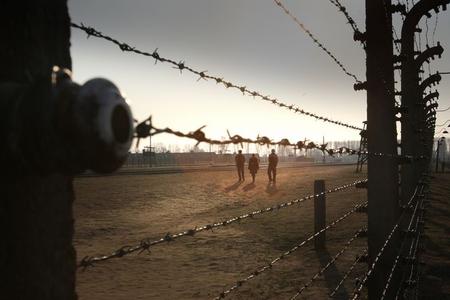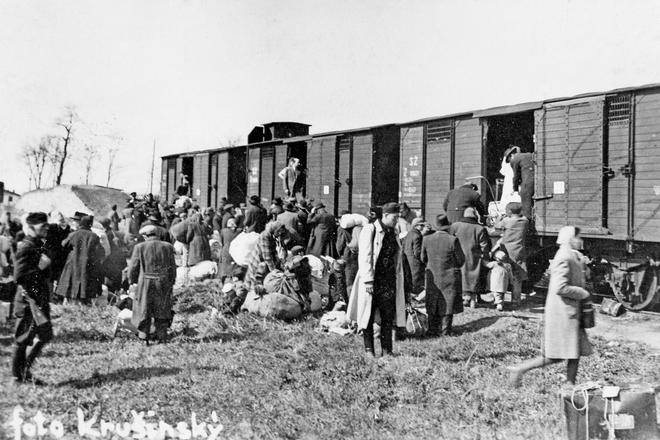Parliament has formally condemned the mass deportation of Jews from Slovakia to Nazi death camps during World War II.
In the resolution that parliament adopted today, marking the 80th anniversary of the first transport from Slovakia to Auschwitz on March 25, 1942, MPs also asked for forgiveness from those who survived, and from the relatives and descendants of the victims.
Parliament declared that it finds "the forcible deportations of citizens of Jewish origin from the territory of the then Slovak Republic, which took place between March 25, 1942 and October 20, 1942, to be particularly reprehensible." Its statement stresses that any legislation leading to discrimination or the violation of human and civil rights is unacceptable.
Last year, the in 1941.
Young women went first
The first transports were mostly filled with young women. Their appalling experience on the trains was, if anything, even more traumatic for the pensioners and small children who followed on later transports, Martin Korčok, head of the Holocaust Museum in Sereď, said in an earlier interview.
Altogether over 70,000 Jewish citizens of Slovakia died in Nazi concentration camps.
The first wave of transports left the then German-allied Slovakia between March 25 and October 20, 1942. Altogether, 57,628 citizens were sent away during that time. The Slovak state paid the Nazi authorities a so-called "settlement fee" of 500 Reichsmarks for each person despatched.
The second series of transports started under German occupation in 1944, with the first train leaving from Sereď on September 30, 1944. An estimated 13,500 more Jews were deported from Slovakia before the war ended.
We should show a strong stance today, says president
Prime Minister Eduard Heger (OĽaNO) said that the anniversary is a loud reminder of our duty to preserve peace, democracy and human rights.
President Zuzana Čaputová said during a commemoration of the anniversary in Poprad that anti-Semitism had not disappeared; on the contrary, she noted, anti-Semitic incidents have been on the rise in recent years.
"Anti-Semitism is also demonstrated in the denial of historical facts and downplaying of crimes, including the cynical reasoning of Russia's aggression against Ukraine by [reference to] so-called "denazification"," the president said, as quoted by the TASR newswire.
"When our ancestors faced evil, they asked themselves whether to stand by and watch or stand up against it. Fortunately, we are risking much less than they did when we express our moral stance. Our voice should thus be all the more strong, as well as our willingness to do the right thing," she added.



 (source: Archive of the SNP Museum in Banská Bystrica)
(source: Archive of the SNP Museum in Banská Bystrica)